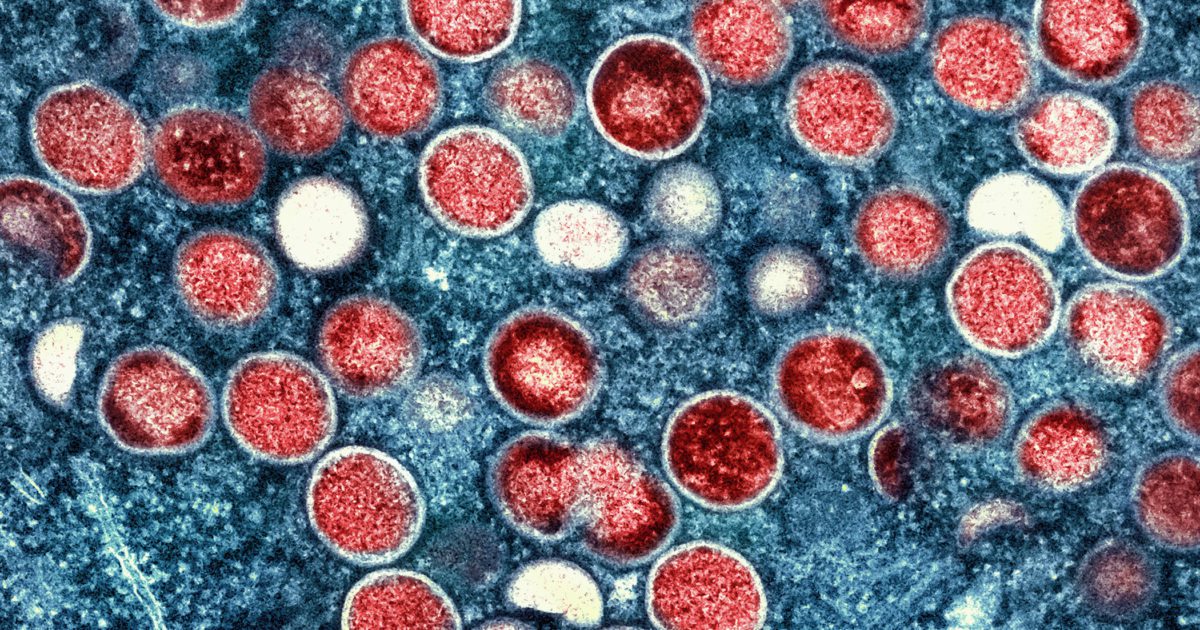Isn’t gain-of-function research illegal?
If so, why haven’t the mad scientists who conduct the dangerous experiments been thrown inside a jail cell?
Last week, researchers at Boston University developed a more lethal COVID-19 strain with an 80% kill rate in infected mice.
The National Institutes of Health (NIH) announced to launch an investigation into the new COVID strain.
The top NIH director admitted that she only learned of the details from the news media reports.
Dr. Emily Erbelding, a director at the NIAID division of microbiology and infectious diseases, admitted that she was unaware of the details of the research.
She said the researchers at Boston University did not clear the work with the NIAID, making the research unauthorized.
Now, American researchers are experimenting with monkeypox right before the midterm elections.
Reports from Science revealed that scientists at a government lab in Bethesda, Maryland, are planning to conduct an experiment to swap genes between two strains of monkeypox, one that causes more severe sickness and the other that causes large rashes and flu-like symptoms.

What is the point of this research?
To develop a bioweapon?
From Science:
In a U.S. government lab in Bethesda, Maryland, virologists plan to equip the strain of the monkeypox virus that spread globally this year, causing mostly rash and flulike symptoms, with genes from a second monkeypox strain that causes more serious illness. Then they’ll see whether any of the changes make the virus more lethal to mice. The researchers hope that unraveling how specific genes make monkeypox more deadly will lead to better drugs and vaccines.
Some scientists are alarmed by the planned experiments, which were first reported by Science.If a more potent version of the outbreak strain accidentally escaped the high-containment, high-security lab at the National Institute of Allergy and Infectious Diseases (NIAID), it could spark an “epidemic with substantially more lethality,” fears epidemiologist Thomas Inglesby, director of the Center for Health Security at the Johns Hopkins University Bloomberg School of Public Health. That’s why he and others argue the experiments should undergo a special review required for especially risky U.S.-funded studies that might create a pathogen that could launch a catastrophic pandemic.
But it’s not clear that the rules apply to the proposed study. In a 2018, a safety panel determined it was exempt from review. Monkeypox did not meet the definition of a “potential pandemic pathogen” (PPP), the panel decided, because it didn’t spread easily. Now, with monkeypox widespread, the National Institutes of Health (NIH) is planning to reexamine the work, but it still might not qualify as “enhancing” a PPP, the agency says. That’s because the study will swap natural mutations, not create new ones, so it is not expected to create a monkeypox strain more virulent than the two already known.
"A Government laboratory in Maryland plans to make the circulating monkeypox strain more lethal..The team wants to equip the dominant clade-which mostly causes a rash and flu-like symptoms-with genes from another strain that causes severe disease."https://t.co/xeBN3fOVLp
— Richard H. Ebright (@R_H_Ebright) October 25, 2022
More from the Daily Mail:
The latest monkeypox study is being funded by the National Institute of Allergy and Infectious Diseases (NIAID), a research arm of National Institutes of Health (NIH).
But the modified virus ‘poses an exceptionally high risk’ to the public if it accidentally leaks, according to Dr Richard Ebright, a microbiologist at Rutgers University in New Jersey.
The team in Maryland would argue their work does not involve ‘enhancing’ a pathogen because they are swapping natural mutations rather than creating new ones, meaning the hybrid cannot be more deadly than the existing clades.
But the news will no doubt surprise many Americans that such research continues to go on in the US despite fears similar practices may have started the pandemic.
The Maryland team’s work is being led by NIAID scientist Bernard Moss at the agency’s headquarters in Bethesda.
This phase of the study will involve extracting dozens genes from the more severe clade 1 monkeypox virus and putting them into the milder clade 2 virus.
They will then infect mice with the hybrid virus and monitor how the disease progresses.
The team had initially attempted the reverse: swapping genetic materials in the less virulent clade into clade 1 to make it less deadly, but without success.
The current global outbreak is confirmed to be driven by clade 2, the less deadly West African monkeypox strain, which has a mortality rate of less than one percent.
Clade 1, meanwhile, kills one in 10 people it infects. It has its origins in the Democratic Republic of the Congo and primarily spreads in the Congo Basin.



Join the conversation!
Please share your thoughts about this article below. We value your opinions, and would love to see you add to the discussion!